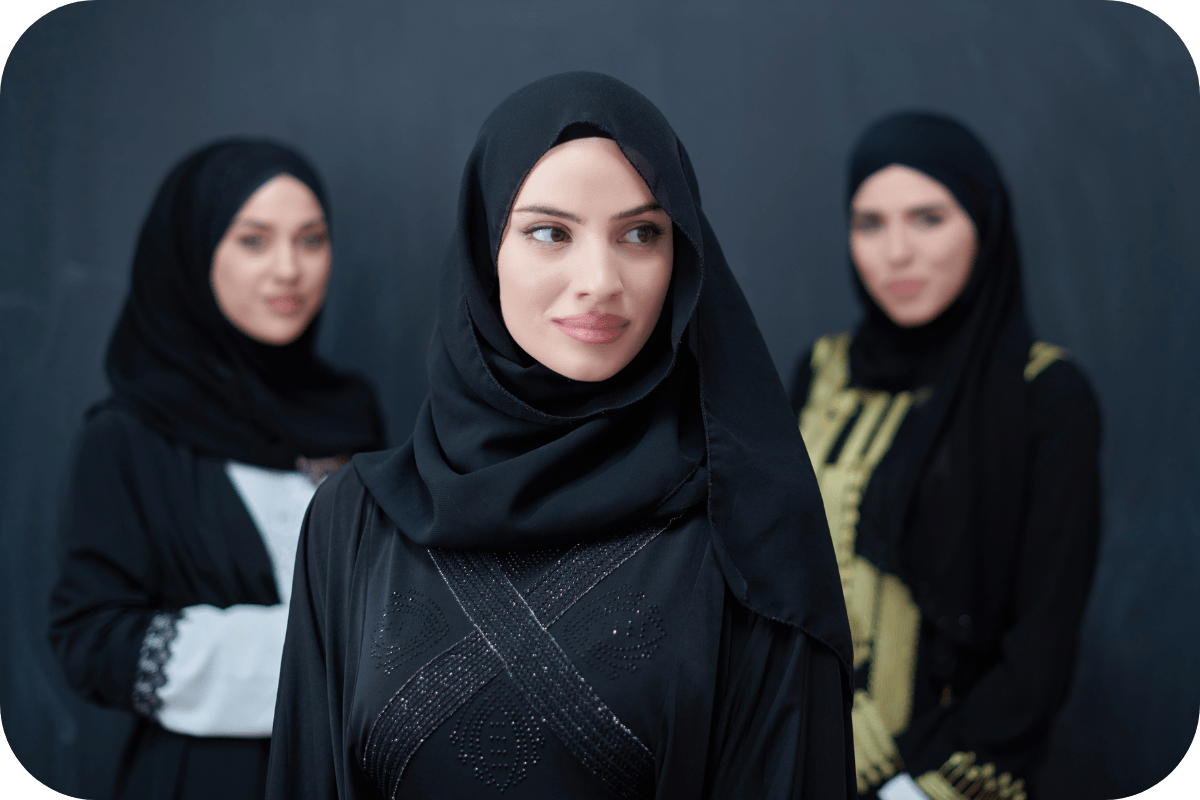Why do Muslim women wear modest clothing
Why do Muslim women wear modest clothing

In today's world, the clothing choices we make can often be seen as statements about our identity, beliefs, and values. This is particularly true for Muslim women who opt for modest clothing, with the hijab being a prominent aspect of their attire. Modest clothing has always played a significant role in Islamic culture as a symbol of religious and cultural identity, reflecting the values and beliefs of the Muslim community. In this article, we will explore the reasons behind wearing modest clothing in Islam and the factors that influence this choice.
What is modest wear in Islam
Modest wear in Islam refers to a style of clothing that covers the body appropriately, according to Islamic teachings. It involves covering the hair, neck, and chest for women, as well as wearing loose-fitting garments that do not reveal the shape of the body with the exception of the face and hands. Similarly, modest wear for men entails covering the body from the navel to the knee. The objective of modest wear is to divert attention from one's physical appearance and focus more on inner qualities and character, fostering humility and respect within society.
Reasons behind Muslim women wearing modest clothing
1. Religion
One of the primary reasons Muslim women wear modest clothing is because of religious beliefs. Islam places strong emphasis on modesty as an essential virtue for both men and women. The Quran instructs believers to dress modestly and to guard their modesty.
“And tell the believing women to lower their gaze and guard their chastity, and not to reveal their adornments.”
(Surah Al-Noor, verse 31)
This verse highlights that for Muslim women, modesty is seen as a way to demonstrate their devotion to God and fulfill their religious obligations. By adhering to the principles of modest dress, they believe they are obeying God's commandments and striving to be pious individuals.
2. Respect and Dignity
Another reason why Muslim women choose to wear modest clothing is rooted in the idea of respect and dignity. By embracing modesty, women demonstrate their self-respect and elevate their personal dignity. Modest clothing allows Muslim women to present themselves in a manner that prioritizes inner qualities and character over outward appearance.
It promotes an atmosphere of mutual respect and prevents objectification, as it shifts the focus from physical attributes to a person's intellect, personality, and contributions. By dressing modestly, Muslim women aim to instill a sense of modesty and respect within society, fostering a culture that values individuals for their inner worth rather than their outward appearance.
3. Personal Reasons
Beyond religious and cultural reasons, many Muslim women adopt modest clothing due to personal convictions and individual preferences. Some women feel a sense of empowerment and self-confidence when wearing modest attire which shifts the focus from their physical appearance to their character and intellect and allow them to express their individuality, creativity, and personal style while staying true to their faith and values.
For some women, it also serves as a form of self-expression and a means of standing out in a world often obsessed with materialism and external appearances.
Explore Riwaya's diverse range of modest clothing, tailored to express your individuality, honor your values, and celebrate your personal style.
Modest clothing within local cultures
Additionally, local cultures play a significant role in the choice to wear modest clothing among Muslim women. Across various countries and regions, unique cultural norms and traditions shape the style and aesthetics of modest attire. For instance:
- In Arab countries, the abaya represents a quintessential garment, often donned by women for its loose-fitting design, covering the entire body and exemplifying elegance and modesty.
- In Southeast Asia, the Baju Kurung worn by Muslim women represents a modest yet elegant ensemble with its loose-fitting design.
- In West Africa, the Boubou is a popular choice for modest dressing, featuring long, flowing robes.
- In Pakistan and India, the salwar kameez stands as an emblematic ensemble, comprising loose-fitting trousers paired with a tunic or dress, offering both modesty and comfort.
- In Western Europe, long dresses or flowing garments are embraced by Muslim women, blending traditional modesty with contemporary fashion sensibilities.
Each cultural variation in modest clothing not only reflects diversity but also adds richness to the way Muslim women express their identity through clothing. Modest fashion has become a powerful platform for embracing one's heritage and celebrating diversity within the Muslim community.
Conclusion
The decision to wear modest clothing among Muslim women encompasses a multitude of factors. While religious teachings provide the foundation for modest dressing, cultural influences and personal convictions play equally important roles in shaping individual choices. At Riwaya we offer a range of modest and chic attire tailored to your style and faith, find your perfect ensemble and embrace fashion that resonates with your values.
Buying on Riwaya
Experience elegance and modesty combined at Riwaya! explore our Islamic women's clothing collection Today. Elevate your style, embrace individuality, and donor religious values with our thoughtfully curated collection of modest clothing from our trusted sellers. Discover the Perfect Blend of Fashion and Faith.
Selling on Riwaya
Calling all creators in the world of Islamic fashion! Riwaya is your avenue for success in the realm of elegant modest wear and beyond.
With Riwaya, you get access to a vast, engaged community of Muslim consumers actively seeking the finest Islamic modest wear like yours, by joining us, you tap into a network that bridges the gap between Islamic product sellers and the thriving global Muslim community.
Plus, our platform offers fantastic features and tools to enhance your sales experience, ensuring your products receive the attention they deserve. Become a seller with Riwaya today and let your products find their perfect audience effortlessly.
FAQs
Q1: Is wearing modest clothing mandatory in Islam?
Yes, modest dressing is mandatory in Islam, it's considered a religious obligation for adult Muslim men and women to dress modestly, as an obligatory ruling agreed upon by community consensus.
Q2: What counts as a woman's Awrah?
A woman's awrah in Islam refers to the parts of her body that should be covered in front of non-mahram men (those whom she can potentially marry) and it includes the entire body except for the face, hands and feet.
Q3: Is hijab the only form of modest clothing for Muslim women?
No, modest clothing encompasses various styles beyond the hijab, such as the abaya, jilbab, and more. Modesty is more about how clothes are worn rather than the specific garments themselves. Each clothing style aligns with modesty standards, providing diverse options for expression and individual preferences within Islamic modest fashion.
Q4: What do Muslim women need to cover?
Muslim women are required to cover their entire body except for their face and hands in the presence of non-mahram men (those whom she can potentially marry). This typically includes wearing clothing that conceals the hair, neck, and chest, along with loose-fitting garments that do not reveal the body's shape.
Q5: What role does modest clothing play in Muslim culture?
Modest clothing is deeply rooted in Islamic culture, signifying adherence to religious principles and reflecting cultural values. It serves as an expression of faith, identity, and cultural heritage within the Muslim community.
Q6: Can modest clothing be fashionable and trendy?
Yes, modest clothing has evolved to become fashionable and trendy, catering to various styles, designs, and tastes. Modest fashion now includes diverse options that align with contemporary trends while maintaining modesty.



